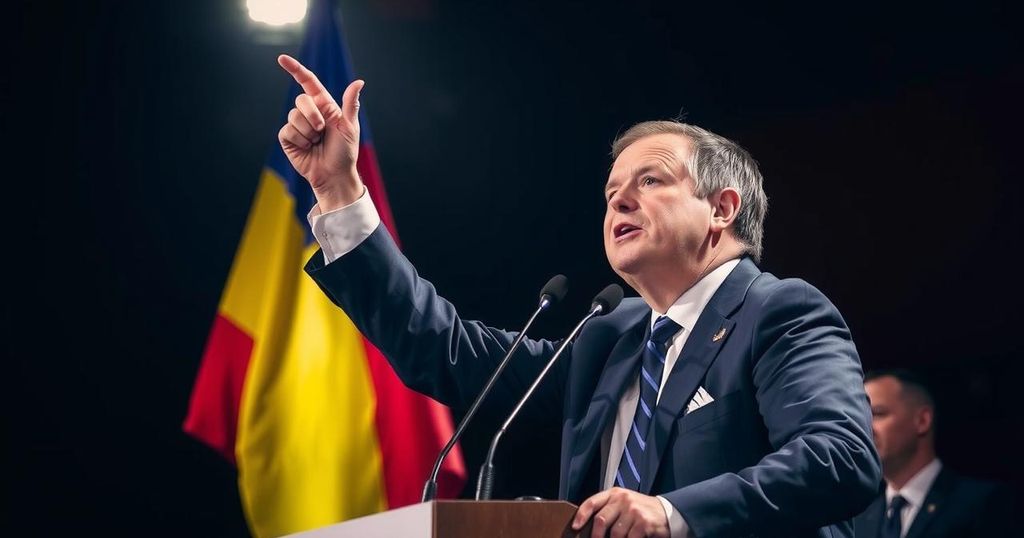Politics
Technology
ALLIANCE FOR THE UNITY OF, ALLIANCE FOR THE UNITY OF ROMANIANS, ALLIANCE FOR UNITING ROMANIANS, ASIA, ATLANTIC, CALIN GEORGESCU, CENTRAL ELECTORAL BUREAU, CIOLACU, ELECTIONS, ELENA LASCONI, EUROPE, EUROPEAN UNION, FAR-RIGHT POLITICS, FRANCE, GEORGE SIMION, GERMANY, HAARETZ, ISRAEL, MINISTRY OF ENVIRONMENT, NATO, NORTH ATLANTIC ALLIANCE, OF ENVIRONMENT, PARLIAMENTARY ELECTIONS, POLITICS, POPULISM, ROMANIA, SAVE ROMANIA UNION, SAVE ROMANIA UNION PARTY, SOCIAL DEMOCRATIC PARTY, TI, TIKTOK, UK
Fatima Khan
0 Comments
Hard-Right Populist Calin Georgescu Leads in Romania’s Presidential Election
Calin Georgescu, a hard-right populist, has unexpectedly surged ahead in Romania’s presidential election, leading with nearly 23 percent of the votes. Pro-European Prime Minister Marcel Ciolacu follows closely with around 20 percent. Georgescu’s rise, primarily due to his use of social media and a strong anti-NATO stance, sets the stage for a significant run-off election next month.
In a surprising turn of events, Calin Georgescu, a hard-right populist known for his criticism of the European Union and NATO, has taken a significant lead in Romania’s presidential election. With nearly 23 percent of the votes counted, he has edged ahead of Prime Minister Marcel Ciolacu, who garnered approximately 20 percent. The partial election results suggest that Georgescu, an independent candidate with little prior media exposure, will confront Ciolacu in a run-off scheduled for December 8.
The context of this election is particularly notable given Romania’s status as a member of both the European Union and NATO. The country has historically maintained a pro-Western stance and has supported Ukraine amidst ongoing hostilities with Russia. Georgescu, a former environment ministry official, was previously polling at about 5 percent, which makes his surge in votes a disturbing prospect for the political landscape of Romania.
Calin Georgescu’s unexpected rise in the Romanian presidential race reflects shifting public sentiment and may indicate a challenge to the established pro-European policies of the current government. His anti-NATO stance and controversial historical views raise concerns regarding Romania’s future direction, especially in light of its geographical proximity to the conflict in Ukraine.
Original Source: www.aljazeera.com




Post Comment